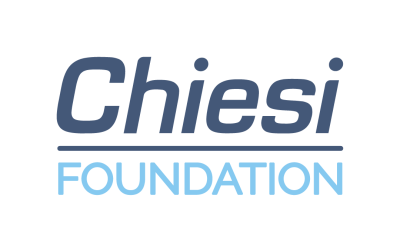The Country
Burundi, a country in Central Africa, is characterized by a complex interdependence of geographical, socioeconomic and political factors. Its location in the Great Lakes region, with a predominantly hilly terrain and tropical climate, has a significant impact on natural resources and the environment. High population density and dependence on subsistence agriculture place a strain on arable land and water resources.
In 2023, Burundi’s population was estimated at approximately 13,689,450, with significant population growth. The population distribution is predominantly rural, with 86% of the population living in rural areas and only 14% in urban areas. Life expectancy at birth is approximately 62 years for men and 66 years for women.
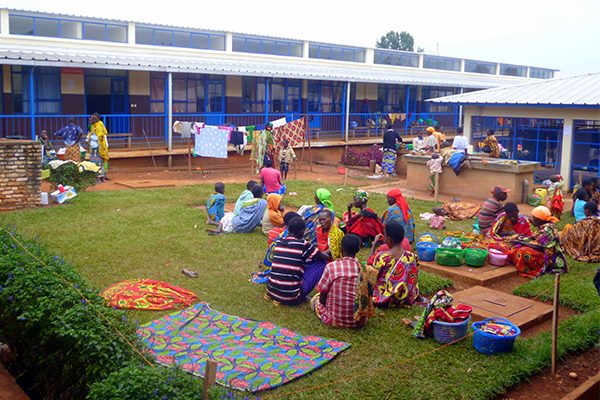
From a socioeconomic point of view, Burundi is one of the poorest countries in the world. Inequality is marked, and access to essential services such as education and health is limited, especially in rural areas. The country’s political history has been marked by ethnic conflict and instability, with repercussions on governance and development. Despite being a presidential republic, the political system is fragile and characterized by opacity and corruption.
Burundi has one of the most fragile health systems in sub-Saharan Africa. Decades of political instability, armed conflict, and deep poverty have devastated the country’s health sector. Access to basic health services is minimal, with acute shortages of trained medical personnel, essential medicines, and adequate infrastructure. Infectious diseases such as malaria, tuberculosis, and HIV/AIDS are endemic, and infant and maternal mortality are among the highest in the world.
In 2022, the neonatal mortality rate in Burundi was approximately 20 deaths per 1,000 live births. This data highlights the urgent need to improve neonatal care in the country, where access to quality health services is limited and resources are scarce. The Chiesi Foundation, through the NEST Model (Neonatal Essentials for Survival and Thriving), is working to address these challenges and improve neonatal survival in Burundi.
(Source: data.who.int)
Burundi in numbers
Burundi in numbers
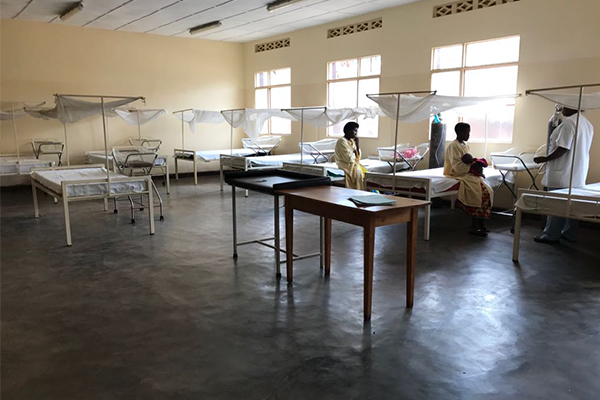
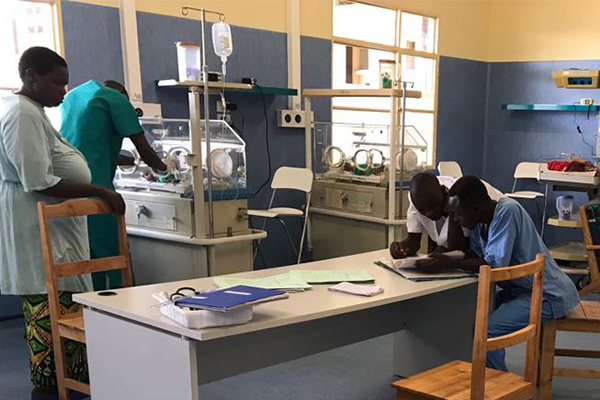
Our intervention
Chiesi Foundation has undertaken an ambitious project in Burundi, focused on improving neonatal care, in particular through the promotion of the Kangaroo Mother Care (KMC) method.
The collaboration with Ngozi Hospital was fundamental to the realization of this project. After supporting the construction of an area dedicated to KMC, the Foundation focused its efforts on training health personnel and spreading the method at the provincial level.
A key element of the project was the creation of a KMC manual and the development of a specific training model, adapted to the local context. This allowed the transfer of knowledge necessary to health personnel to implement KMC in their facilities.
The assessment of birth centers in Ngozi province provided a comprehensive overview of the local health situation, identifying areas for improvement and specific needs.
Ngozi Regional Hospital confirms itself as a point of reference for the promotion of Kangaroo Mother Care (KMC) in Burundi. Thanks to the support of Chiesi Foundation, in 2023 this health facility obtained an important national recognition, consolidating its role as a training center for this fundamental practice for the survival and development of premature babies.
The integration of KMC into neonatal care was made possible thanks to intense teamwork between Chiesi Foundation, local partner Amahoro pro Africa and the hospital’s healthcare staff.
A key element of this success was the development of a comprehensive training program, supported by specific educational materials and an innovative training model.
During the year, the national validation process of the training materials represented a fundamental step. Thanks to the collaboration with the Ministry of Health, a workshop was organized for the review and refinement of the teaching materials, in view of their dissemination on a national scale.
In parallel, training activities for KMC referents have been launched in the five provincial hospitals. These professionals, after receiving intensive theoretical and practical training at Ngozi Hospital, are now ready to spread KMC in their respective facilities.
In addition, to promote the adoption of KMC at the provincial level, awareness-raising activities have been organized and assessment visits have been carried out to identify the specific needs of each hospital. The aim is to create the ideal conditions for the implementation of KMC units within local health facilities.
Our intervention
Chiesi Foundation has undertaken an ambitious project in Burundi, focused on improving neonatal care, in particular through the promotion of the Kangaroo Mother Care (KMC) method.
The collaboration with Ngozi Hospital was fundamental to the realization of this project. After supporting the construction of an area dedicated to KMC, the Foundation focused its efforts on training health personnel and spreading the method at the provincial level.
A key element of the project was the creation of a KMC manual and the development of a specific training model, adapted to the local context. This allowed the transfer of knowledge necessary to health personnel to implement KMC in their facilities.
The assessment of birth centers in Ngozi province provided a comprehensive overview of the local health situation, identifying areas for improvement and specific needs.
Ngozi Regional Hospital confirms itself as a point of reference for the promotion of Kangaroo Mother Care (KMC) in Burundi. Thanks to the support of Chiesi Foundation, in 2023 this health facility obtained an important national recognition, consolidating its role as a training center for this fundamental practice for the survival and development of premature babies.


The integration of KMC into neonatal care was made possible thanks to intense teamwork between Chiesi Foundation, local partner Amahoro pro Africa and the hospital’s healthcare staff. A key element of this success was the development of a comprehensive training program, supported by specific educational materials and an innovative training model.
During the year, the national validation process of the training materials represented a fundamental step. Thanks to the collaboration with the Ministry of Health, a workshop was organized for the review and refinement of the teaching materials, in view of their dissemination on a national scale.
In parallel, training activities for KMC referents have been launched in the five provincial hospitals. These professionals, after receiving intensive theoretical and practical training at Ngozi Hospital, are now ready to spread KMC in their respective facilities.
In addition, to promote the adoption of KMC at the provincial level, awareness-raising activities have been organized and assessment visits have been carried out to identify the specific needs of each hospital. The aim is to create the ideal conditions for the implementation of KMC units within local health facilities.
Our main activities in Burundi
Construction of the Mother and Child Hospital Center.
Preparation of the ward with specialized medical equipment.
Continuous training of local nursing staff.
Ngozi Hospital recognized for KMC training.
